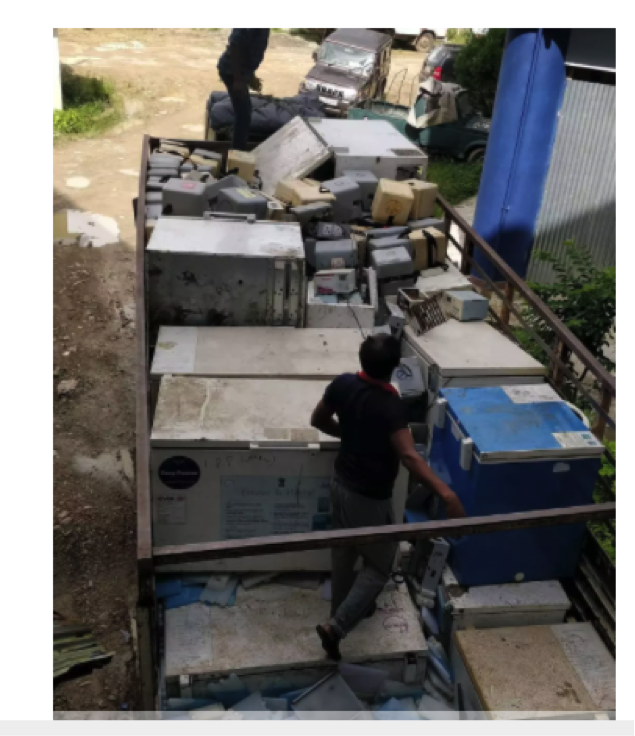What do you do with a broken earphone that does not work anymore? You throw it away, right. The same goes for your old television remote that usually ends up in your dustbin. What exactly is wrong here. Of course, you would say nothing as these things are waste and the right place is a dustbin. Well, we say it is disastrous the way we treat our e-waste. To ensure that e-waste management is done properly, e-Circle is India’s first-ever e-waste collection centre at Dimapur Nagaland. It is currently operating in the state with plans to cater to the rest of the country.
In a report published by the Central Pollution Control Board, India collected just 10 per cent of the electronic waste (e-waste) estimated to have been generated in the country 2018-19 and 3.5 per cent of that in the generated in 2017-18. India generated 708,445-tonne e-waste in 2017-18 and 771,215 tonnes the following fiscal, the report estimated. In 2019-20, the figure rose 32 percent to 1,014,961 tonne.
Two young girls from Dimapur, Bendangwala Walling and Sowete-u K Letro realised the problem that was being posed by the volume of e-waste that gets generated. There has been no guidance over e-waste disposal. Bendangwala Walling and Sowete-u K Letro are the co-founders of the company e Circle 2018. True to her name Sowete, (it means someone who is a leader) took up the challenge of disposing of the e-waste responsibly. One of the founders, Soweto shares the journey and the work e-Circle has done so far with the team The EarthView.

Sowete said, “I met Bendangwala at Punjab University, Chandigarh while pursuing my masters in Human Rights. Bendangwala holds a Master’s in Social Work. The idea was born while at our internship with Mott MacDonald, a consultant for the Shillong Municipal Board. We were working on a project on solid waste management. It was then we realised everyone is more focused on waste management, but e-waste management is not given a priority. Although looking at our lifestyle, e wastage is a tremendous concern now. All we do is sell it away or throw it. Even the government is struggling to dispose of that wastage.”
She further informed, “We started looking out for people and organisations that could help us with the idea. Finally, in September 2018, we could formalise e circle after getting a license from the state pollution control board, Nagaland. Our recycling partner is West Bengal based, Hulladek Recycling Private Limited. ”
Talking about the challenges faced by e-Circle for e-waste management, Sowete shares, “People are not exactly aware that e-waste is entirely a unique concept. Its disposal also needs a specific treatment than regular waste. Also, no one wanted to understand the significance of why e-waste management is important for our environment. We run workshops on e-waste management in schools, colleges, councils, motor garages and other places to educate the masses.”

She also highlighted, “Other than this, many of us think we are buying e-waste as scrap dealers and want us to pay them for the junk. It is tough to make them understand sometimes.” Sowete with her team collects e-waste from different locations. Post collection, they do the segregation. Once the waste is sorted properly they transfer it to Hulladek Recycling Private Limited. Talking about the e-Circle plan for the future, She said, “We have been getting a good response and plan to start the e-waste management to the neighbouring states. I want the entire country to benefit from such initiatives.”
She urged people to come forward and work towards finding out solutions to the problems and do their bit. “We have a tendency of thinking that a solution to any problem should come from others. I would request everyone out in society to look and act in finding a solution to issues that affect our daily life. It’s the change that is much needed. Why wait for any issue to become a nuisance? We all have the capabilities to bring change to this world,” she said as she signs off.
Written by: Tabbasum Jawed

